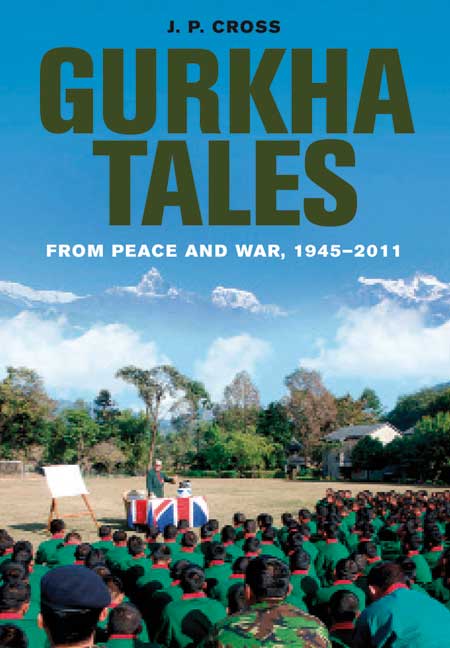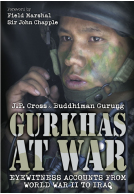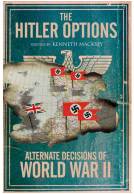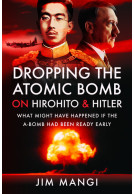Gurkha Tales (Hardback)
From Peace and War, 1945–2011
(click here for international delivery rates)
Need a currency converter? Check XE.com for live rates
| Other formats available - Buy the Hardback and get the eBook for free! | Price |
|---|---|
| Gurkha Tales ePub (4.7 MB) Add to Basket | £4.99 |
Gurkhas have served with the British for almost 200 years, first with the army of the East India Company, then with the Indian Army of the Raj, and then in 1947 becoming an integral part of the British Army. This anthology of articles from The Kukri by J. P. Cross covers much of the past sixty years of their history, taking in the last days of the Second World War and the Indonesian Confrontation in the 1960s, and also gives an insight into the culture and beliefs of these renowned soldiers.
As a Gurkha officer, J. P. Cross had many unusual experiences in his long career: in 1945, for example, he was attached to a Japanese battalion in Indochina which was fighting for the British against the Viet Minh, and the only photograph taken of this Japanese unit finally laying down its weapons appears in this book. Later, he just managed to resolve a potentially deadly dispute between an offended Gurkha and a visiting South Vietnamese trainee at the Jungle Warfare School. He also describes several seemingly supernatural experiences whilst serving with troops from a culture where such things are firmly believed in.
This is a unique anthology drawn from an equally unique military career and a relationship with the Gurkhas that has lasted for over half a century.
It may be said with some authority, that John Cross’ knowledge on matters Gurkha, their customs and history, remain unsurpassed. Not only has he served some 39 years in the army, mostly with Gurkhas, but has seen much active service during the war, the Malayan Emergency, and the Indonesian Confrontation in Borneo. Now retired, he lives in Pokhara, Nepal, where his total association with Nepal and its Gurkhas extends to some 67 years. He has been prolific in the writing of fictional historical novels, in addition to many autobiographical publications, reviewed and published in both past editions of ‘Kukri’s’ and 7 GR Regimental Association Journals.
The Jungle Warfare School, and The Confrontation against Indonesia.
By common cause his command of Nepali will very probably never be surpassed by any non-Gurkha. John has a penchant for both writing and recording various incidents of military interest during a remarkable military career. A few may yet be awaiting publication but the majority have been published, over the past years, in the ‘Kukri.’ These include:
‘Last days of Empire,’ a sad reflection of the division of the existing British/Indian army Gurkhas to the British and Indian army ORBATS.
This work consists of a collection of articles, the majority of which were originally written for The Kukri, journal of the Brigade of Gurkhas over a period between 1950 and 2007.
Gerry Birch, Asian Affairs
The author, Lt Col JP Cross has had a unique career, serving and living in South and Southeast Asia since he was commissioned into the 1st Gurkha Rifles in the Indian Army in 1944. He has written a series of autobiographical books describing his service from the end of World War II, through the Malayan Emergency to the Borneo Confrontation with Indonesia in the early 1960s and service thereafter, mainly in Nepal where he now lives. He has also written a series of historical novels based on Nepalese and British Indian history, the common thread throughout being the British Gurkha connection. He is also a linguist of considerable skill and repute having the ability to pick up many kinds of Asian languages and dialects. This ability enabled him to get to know in real depth the soldiers, both Gurkha and others such as The Border Scouts in Borneo of whom he was the commander. Having a thorough understanding of such languages was often a key factor in the successful planning and execution of delicate operations in the jungle. Such operations often involved dealing with aboriginal tribes living deep in the jungle. To gain their trust and to obtain vital intelligence, an understanding not only of their languages but also their beliefs and superstitions, was vital. Cross had this ability which is well demonstrated in many of the individual ‘Tales’. The ‘Tales’ include some interesting pieces on little known incidents and written or edited as seen at first hand by those involved. One ‘Tale’ tells of the use the Allies had to make of the remnants of the defeated Japanese army left in south Asia. The defeat by the Japanese of the colonial administrations, i.e. the Dutch, French and British in the early years of the war in the Far East and then followed in turn by the surrender of the Japan in 1945, left a power vacuum. During the war various ‘independence’ groups had been active against the Japanese, often armed and supported by the Allies, now saw their chance to gain independence from their former colonial masters. There was a particular problem in what was French Indo China where Cross found himself in 1945. Due to poor administration on the ground by pro-Vichy French colonials, the British took over responsibility for law and order. However there was a shortage of troops to carry out this task and in the event Japanese forces were re-armed and carried out this work under strict British command. Cross tells how this was done and describes the details involved. He maintains that the photograph of the eventual surrender ceremony included in the book is unique and probably never before seen. Quite apart from the large number of Gurkhas, a little known aspect of the Far East war was the support given by the Nepalese government by provision of units from the Royal Nepalese Army (RNA). In an agreement between the Nepalese and Indian governments, Nepalese units were to be deployed within Indian territory only, mainly on security and L of C duties such as guarding airfields, pipelines and similar installations. Cross has recorded the story of the one unit of the RNA that did indeed cross into Burma and was involved in the heavy fighting as 14th Army began its advance to Rangoon as told by its commanding officer. The unit performed with great credit which is reflected still today in its regimental title, ‘The Famous Mahindra Dal Battalion’. Other ‘Tales’ concern Cross’s time as the last Defence Attaché to be appointed to Laos, his time as Commandant of the Jungle Warfare School in Malaya where he had some tricky moments with foreign students from other nations and their dealings with his Gurkha instructors, the Gurkha Independent Parachute Company and the Border Scouts in Borneo. This is an interesting collection of detailed and well written vignettes by someone intimately involved in day-to-day operations and his view on the policies followed. This work will appeal to those who have an interest in the conflicts in South and South East Asia in the latter half of the twentieth century.
This splendid anthology covers much of the last 60 years and also gives an insight into the culture and beliefs of these renowned soldiers. This is a unique anthology drawn from the fascinating military career of a British Gurkha Officer.
PENNANT
A unique anthology of articles covering seven decades of life with the Gurkhas, covering jungle warfare, Gurkhas and the British Army and some of the Author's life experience.
Pennant Online
This book is called ‘Gurkha Tales’ but as John Cross explains in his introduction, it is not tales of or about the Gurkhas rather, tales the Gurkhas tell and there is a subtle difference. Each chapter is autonomous but such is the subject and style one is seduced into reading one after the other. Highlights include a description and comments of a visit to Laos in March 1975 when the Vietnam War was ending and a trip to Ootacamund in Tamil Nadu during the India/Pakistan War of December 1971. I warmly recommend this book to all with even a passing interest in Nepal. Furthermore, his final paragraph in the book includes an invitation to all travelling in Nepal to visit him and his extended family in Pokhara where he now lives.
Britain-Nepal Society Journal
I have just started reading Gurkha Tales – which is absolutely absorbing. It is so crystal clear in description and it up ‘ un-put-downable’. Congratulations and well done!
Gerry Wheatley
I’ve just finished reading ‘Gurkha Tales’ and I wanted to tell you how much I enjoyed it. I think you must have a photographic memory perhaps coupled with a detailed daily diary. Amazing. Every chapter merits a book in its own right. What a fascinating life you’ve had and still do of course.
Bill Batten
This is an eclectic and fascinating collection of autobiographical stories by a legendary retired British officer of the Brigade of Gurkhas. Ranging from the strategic and tactical to the whimsical and occasionally spiritual, the anthology provides unique, first-hand insights into service in the formation dating from the end of the Second World War, through to Malaya, Borneo and the People's Revolution in Laos. The detail of his experiences on bygone operations is written with great clarity and contemporary relevance, and is both refreshing and candid.
Soldier Magazine
There are few people with as much knowledge of the Gurkhas as JP Cross, who served as a Gurkha officer for forty years and has lived among them since. The author writes with humour and affection as he recounts his experiences with these elite soldiers. Gurkha culture, beliefs, and history are all explored, and the book offers an intriguing into the Gurkhas' relationship with the British. Fascinating.
The Good Book Guide
Colonel John Cross is a living legend in the British armed forces – very living, one might add, for at the tender age of 87 he still manages to spend half his waking hours trekking the hills of Nepal. Gurkha Tales, his latest book, is an anthology of 30 entertaining and illuminating articles from his seven decades with the Gurkhas. Certainly, no one is better qualified to write about these Napali warriors. The book provides a priviledged insight into a unique – and one of the most enduring – cross-cultural relationships in British military history.
Military History Monthly
Having spent an impressive sixty-seven years amongst the Gurkhas, first as a serving officer and then as a resident of Nepal, few would argue that J. P. Cross is not ideally placed to write a book such as this. With his unparalleled knowledge and experience, the author has produced a unique series of articles, written over the past fifty years.
Britain at War
Gurkha Tales is an eclectic and fascinating collection of autobiographical stories by the legendary “JPX”. Ranging from the strategic and tactical, to the whimsical and occasionally spiritual, this anthology provides unique, first-hand insights into service in the Brigade dating from the end of WW2, through Malaya, Borneo and the people’s revolution in Laos. There is as much in it for Brigade and South Asia fanatics as there is for casual military historians, particularly those who have served in the Brigade and know the author, either personally, or if only by reputation. He writes in his characteristically pithy and wry style, but the detail of his experiences on operations is written with great clarity and contemporary relevance, and is both refreshing and candid. All of the stories provide a rich window into his career and the Brigade of Gurkhas. Although drawn from articles written largely for the Kukri Magazine, they are as graphic and relevant today as they were then, and in one book, allow the reader to dip in and out of the Brigade’s history, and into one of the Brigade’s charismatic and mercurial characters.
Lt Col Elton Davis (Deputy Commander/Chief of Staff, HQ British Gurkhas, Nepal)
It may be said, with some authority, that John Cross’ knowledge on matters Gurkha, their language, customs and history is unsurpassed. Not only has he served some 39 years in the army, mostly with Gurkhas, but has seen much active service during the war, the Malayan Emergency and the Indonesian Confrontation in Borneo. Now retired, he resides in Pokhara , Nepal , where his total association with Nepal and its Gurkhas extends to some 67 years. He has been prolific in the writing of fictional historical novels, in addition to many autobiographical publications, reviewed and published in both past ‘Kukri’s’ and the 7 GR Regimental Association Journals. By common cause his command of Gurkhali will very probably never be surpassed by any non-Gurkha. In addition, he also holds the position of official historian for the Nepalese army and currently much of his time in Pokhra is devoted to charitable causes.
Peter Quantrill, 7th Duke of Edinburgh’s Own Gurkha Rifles Regimental Association Journal
For me, a highlight was the extraordinary event of the surrender of the Japanese Yamagishi Butai unit to John’s battalion, 1/1 GR, in Cochin China , November 1945. A hitherto unpublished photograph recording the event is amongst other outstanding photographs. Together with the aforementioned, there are no fewer than a total of remarkable 31 separate ‘mini- tales’ of equal interest within ‘Gurkha Tales.’
The book’s foreword is written by Field Marshal Sir John Chapple and is described to perfection by the words: “ There is so much to enjoy in these Gurkha Tales, and so much to learn about these superb soldiers with whom we have been privileged to serve,”
Gurkha Tales is interesting, amusing, and represents an anthology drawn from a kaleidoscope of events during John’s unique military career. Highly recommended as a ‘must-read’ for anyone connected with, or interested in NepaL and its very special fame, the ‘without-equal’ Gurkha.
About J P Cross
In 1970, The Economist described J P Cross as ‘one of those gifted, dedicated eccentrics that the British Army has the habit of spawning.’ In his career spanning 40 years, Colonel Cross commanded a rifle company during the Malayan Emergency and the Border Scouts in Borneo, directed the British Army Jungle Warfare School and recruited Gurkhas for the British Army in Nepal.



















